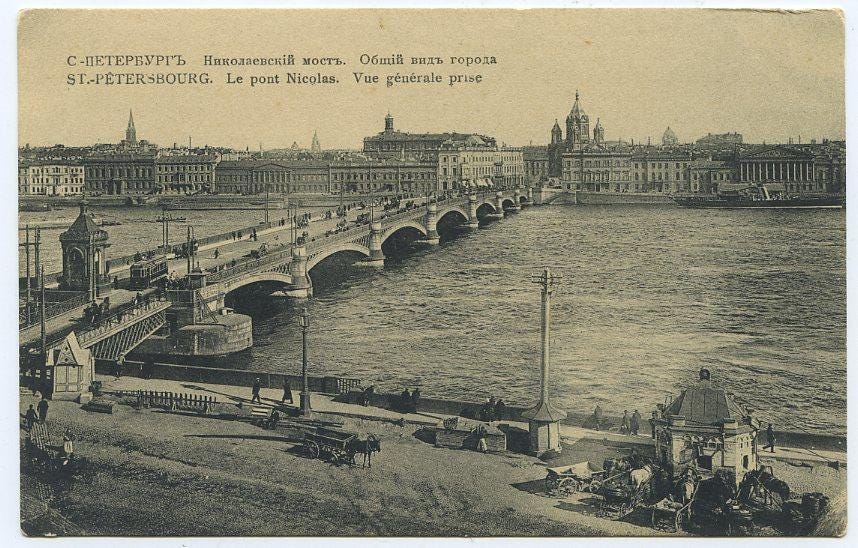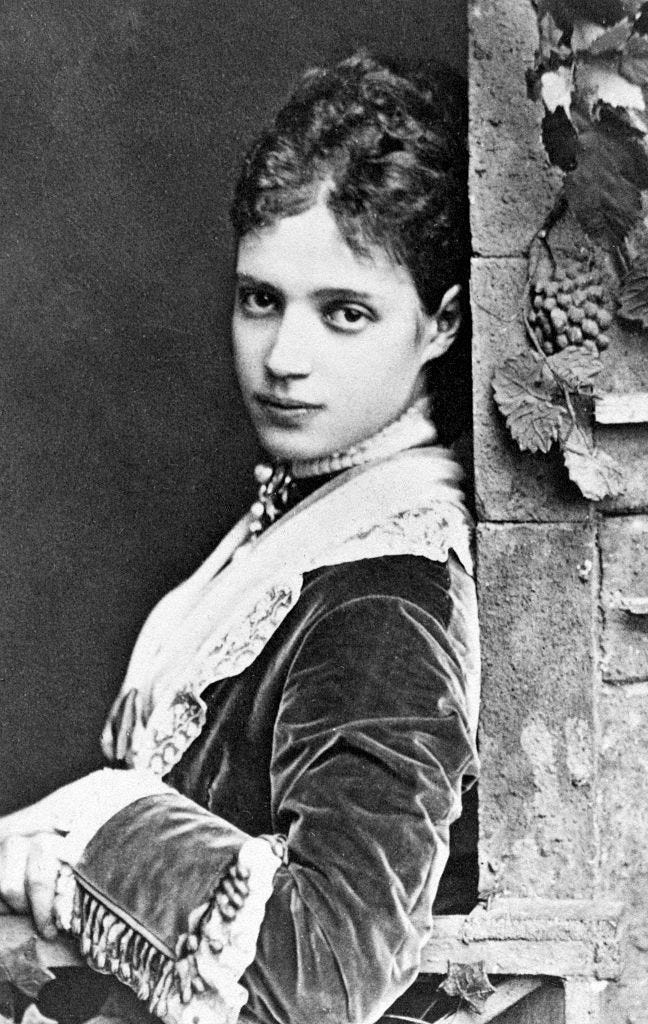January 7, 1880.
Monday. Midnight.
This morning, two icons were brought: one of the Savior and one of the Mother of God—donated to the Mission by Father Kosma Preobrazhensky, a priest from Opechensky Posad, Borovichi Uyezd, Novgorod Governorate, through the efforts of Archimandrite Isaya of the Cross Metropolitan Church. He showed the icons to the Bishop; there were actually three, the third being the Archangel Michael, and the Bishop ordered a paired icon of the Archangel Gabriel to be painted. Father Isaya himself came to explain this matter.
At ten o’clock, I went to the European Hotel on Mikhaylovskaya Street to meet with Vladimir Alekseyevich Veletsky, the consul in San Francisco, to whom I had brought papers from the Slavs there. Until now, I had not been able to meet him, as he had left for the countryside, though I had previously left the papers for him at the hotel. It turned out that he either did not realize or pretended not to realize who had left the papers (even though I had left my calling card with them).
Since he was departing for San Francisco the next day, he refused to handle the matter himself and instructed me to present the papers to the Metropolitan and inform him of the outcome in Moscow, where he would stay for three weeks. (The papers constitute a petition from Christians to the Synod requesting permission to build a church.)
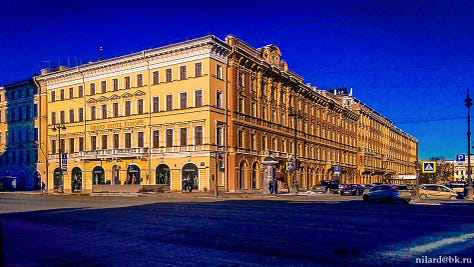
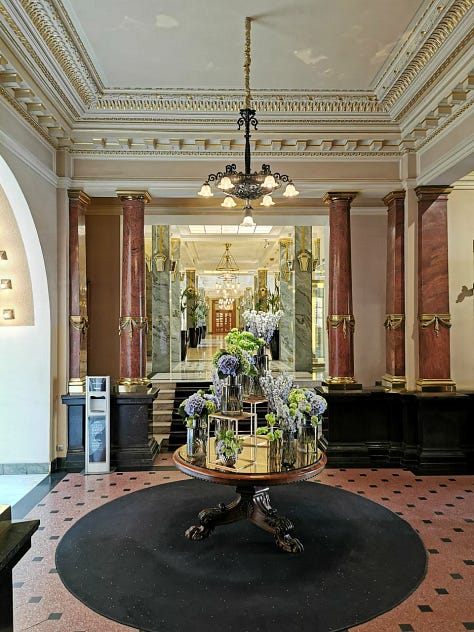
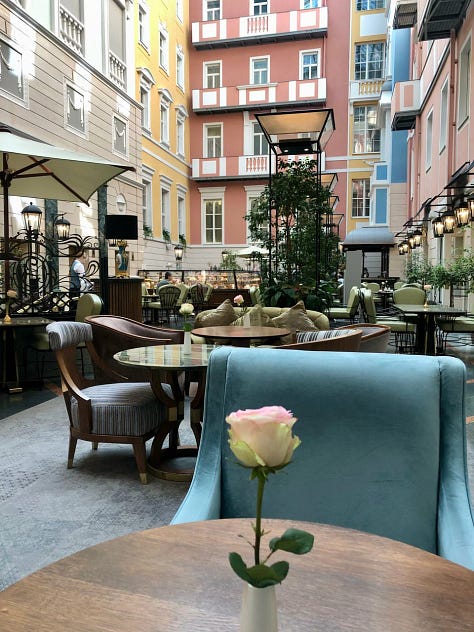
Veletsky exhibited extreme prejudice against His Grace Nestor and the local protopriest, clearly influenced by Kovrigin and the quarrelsome Slavs, who, under the guise of respecting Veletsky, slander the bishop and the protopriest. Veletsky himself is a kind but not particularly shrewd man, it seems; deceiving him is not difficult, and the Slavs are deeply steeped in conflict and discord. All this will ruin the life of His Grace Nestor and the well-intentioned, albeit passionate, protopriest. There will be no success in having the bishop stay there! Though, God grant that I am mistaken.
At the hotel, I also visited A. F. Philippius, who intends to stay in Russia for a year to rest and to acquire a steamship, as his current vessel, Courier, has become too small for trade operations.
At eleven o’clock, I went to the Jewish orphanage at Peski, near Preobrazhensky Square; my primary purpose was to meet with Protopriest Nikanor Ivanovich Bryantsev of Anichkov Palace to ask whether it would be possible to request vestments and icons from the palace church for the Mission. By great fortune, I arrived during the orphanage’s feast day celebration. A liturgy was being conducted by Father Nikanor and two other priests. The orphanage children sang in excellent harmony; they even performed a concert in place of the usual communion hymn. Their voices were clear but slightly sharp and carried a slight Jewish accent. The singers were almost all very young—tiny children.
I stood by the baptistery, which had a beautifully crafted canopy. A metallic dove hung over the baptismal font, and under the canopy were three icons: the Savior, the Mother of God, and John the Baptist. The font was designed to accommodate baptisms of both adults and children; in the latter case, a secondary bottom could be inserted. The water was heated in a boiler in an adjacent furnace and supplied through a plumbing system. The floor was covered with red cloth overlaid with canvas; there were benches for undressing, and even a candle box had been provided. The baptistery had been arranged according to the design and advice of Bishop Isidore himself.
After the liturgy, a moleben (prayer service) was held, during which many years of health and prosperity were proclaimed for the Imperial family, the Metropolitan as the primary member of the charitable institution, his assistant Senator Ivan Mikhailovich Gedeonov, and all benefactors, superiors, teachers, and students.
During the service, I was introduced to the churchwarden, Nikolai Andreyevich Gruzdev, who invited me to a reception following the liturgy. After the liturgy, I spent time with Gedeonov, Protopriest Bryantsev, Admiral Alexander Ilyich Zeleny, and Ilya Alexandrovich Zeleny, tutor to the children of Grand Duke Konstantin Nikolayevich, along with his wife.
After the service, all the guests were given a tour of the institution, where we saw very clean dormitories. Downstairs, in the dining hall, the children—twenty-nine boys and eighteen girls—had gathered. The dining hall was immaculately arranged, with a magnificent crucifix at the front. The children sang Our Father before being served lunch, while the guests proceeded upstairs for the reception.
By then, however, it was already half past one, and I had to leave to present myself before the Tsarevna.
At precisely two o’clock, I arrived at Anichkov Palace.
After my report, the Tsarevna received me in a sitting room adorned with greenery. Among other things, there was a pot of light red azalea above my head, exactly like the ones we have in Japan. Another similar azalea could be seen in the distance.
No wonder the Tsarevna is beloved by all. How simple and gracious she is, how modestly she sat on the divan, gesturing for me to take the nearest chair!
Conversation flowed naturally, and I spoke about the Mission without the slightest hesitation. I took from my pocket a packet containing a photograph of the current Synod group, a copy of Shogaku Zasshi, and a letter from Father Vladimir in Japan, showing them to her throughout my speech.
Several times, she repeated, “Yes, the Mission must be supported, I will speak to the Grand Duke.”
Regarding the Petersburg authorities, she remarked, “They are somewhat asleep here,” though I could not determine exactly whom she meant.
When she rose, I asked if there were any spare vestments or icons from her church, and she replied, “Yes, I will ask, I will certainly ask.”
No one else was present during the audience—at least, I saw no one, nor had I time to look around. And this future Empress of the greatest empire in the world is also the most humble and kindest woman alive! May God grant her much joy and many good deeds!
When I left the Tsarevna, it was three o’clock. Upon returning home, I intended to go into town in the evening but was visited by Protopriest Nikolai Danilych Belorossov from the Mitrofanievsky Cemetery, a former priest in Brussels.

I had last seen him ten years ago in London at Y. I. Popov’s home, and he stayed the entire evening. He is now instructing a certain German count in Christianity, and the count is soon to be received into the Church.
Belorossov spoke at length about his superior, Protopriest Muretov, formerly of St. Isaac’s Cathedral, with much dissatisfaction, and about the clergy in general. He read his latest sermon, in which he cleverly compared reformists to the Jews expelled from Kadesh-Barnea. He also quoted a bishop who said that the elevation of superiors does not come from oppressing subordinates but from uplifting them. He reminisced about his seminary classmates—Maksodonov, Kapiton Belevsky, and others.
Reflections:
In yesterday’s post, I mentioned St. Nicholas.
I was interested to read about this Protopriest Nikander Ivanovich Bryantsev, who St. Nicholas mentioned here. He later became an Archpriest, as I found out in this short biography, and did some very important missions work:
In June 1868, when T. B. Potemkina was in charge of this orphanage, the latter invited Bryantsev "to direct guidance in matters of faith and morality, to collect and spend money, and to conduct other matters related to the conversion and establishment of Jews seeking Orthodoxy." Regardless of this orphanage, Bryantsev had been actively preparing Jews for baptism since 1865, performing the sacrament itself, and looking for places or activities for the newly baptized. Having arranged their financial situation, Bryantsev tried not to lose sight of them in the future and to help, if necessary, from his small funds. In total, Bryantsev converted up to a thousand Jews to Orthodoxy during his lifetime.
What a blessing! Sadly, I could find no pictures of this priest or his mission, and it looks like his mission was discontinued at some point.




